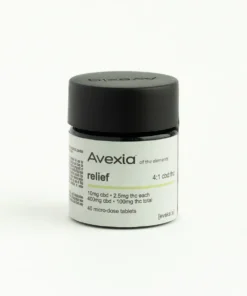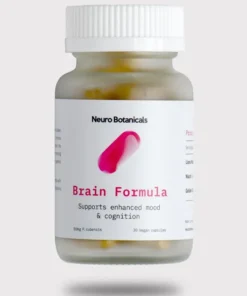Buy Ketamine Hydrochloride 50mg Injection
$185.00
Ketamine Hydrochloride 50mg Injection: Uses, Benefits, and Important Information
Ketamine Hydrochloride 50mg Injection is a widely used anesthetic and analgesic medication that has applications in both medical and therapeutic settings. Known for its rapid action and versatility, ketamine is used in controlled doses for anesthesia, pain relief, and, in some cases, the treatment of mental health conditions.
This guide provides essential information about Ketamine Hydrochloride 50mg Injection, including its uses, benefits, potential side effects, and precautions.
What Is Ketamine Hydrochloride 50mg Injection?
Ketamine Hydrochloride is a non-barbiturate dissociative anesthetic that belongs to the arylcyclohexylamine class. It is commonly supplied in an injectable form, with each milliliter containing 50mg of ketamine as the active ingredient. This medication works by interfering with the NMDA receptor in the brain, producing anesthesia, analgesia, and dissociative effects.
Medical Uses
- Anesthesia
- Ketamine is primarily used to induce and maintain general anesthesia in medical and surgical procedures.
- It is often used in combination with other anesthetics for short-duration surgeries.
- Pain Management
- In lower doses, ketamine provides effective pain relief (analgesia) for acute and chronic pain.
- It is commonly used for post-operative pain or severe trauma cases.
- Mental Health Treatments (Off-Label)
- Ketamine is increasingly being used in controlled therapeutic settings for treating treatment-resistant depression, PTSD, and severe anxiety disorders.
- Administered in sub-anesthetic doses, it has been shown to produce rapid and significant mood improvements.
- Emergency and Veterinary Medicine
- Ketamine is frequently used in emergency settings for rapid sedation or pain relief.
- It is also used in veterinary medicine for anesthesia in animals.
How It Works
Ketamine works by:
- Blocking NMDA receptors in the brain, disrupting normal signal transmission and inducing dissociative states.
- Reducing the perception of pain while preserving certain reflexes and respiratory function.
- Modulating neurotransmitter levels, which may contribute to its antidepressant effects.
Dosage and Administration
- General Guidelines
- Administered via intravenous (IV) or intramuscular (IM) injection by a qualified healthcare professional.
- Dosage depends on factors such as age, weight, medical condition, and intended use (e.g., anesthesia vs. pain relief).
- Typical Dosages
- Anesthesia Induction: 1-2mg/kg IV or 4-10mg/kg IM.
- Pain Management: Lower doses, typically 0.1-0.5mg/kg, depending on the severity of pain.
- Mental Health: Sub-anesthetic doses (e.g., 0.5mg/kg IV) under strict medical supervision.
Benefits of Ketamine Hydrochloride
- Rapid Onset
- Acts quickly, with effects noticeable within minutes of administration.
- Effective Pain Relief
- Provides potent analgesia, particularly for severe or treatment-resistant pain.
- Versatile Applications
- Suitable for use in diverse medical settings, including surgeries, emergencies, and mental health care.
- Preserves Vital Functions
- Unlike some anesthetics, ketamine maintains respiratory and cardiovascular stability.
Potential Side Effects
- Common Side Effects
- Nausea or vomiting.
- Dizziness or drowsiness.
- Increased heart rate or blood pressure.
- Serious Side Effects
- Hallucinations or vivid dreams (emergence reactions).
- Disorientation or confusion.
- Rare instances of respiratory depression in sensitive individuals.
- Long-Term Effects (Chronic Use or Abuse)
- Potential for dependency or tolerance with misuse.
- Bladder or urinary tract issues in cases of prolonged abuse.
Precautions and Contraindications
- Who Should Avoid Ketamine
- Patients with a history of severe cardiovascular disease, hypertension, or psychosis.
- Those with known hypersensitivity to ketamine or any of its components.
- Use with Caution
- In individuals with elevated intracranial pressure or severe respiratory issues.
- During pregnancy or breastfeeding, unless deemed necessary by a healthcare provider.
- Interactions
- May interact with other CNS depressants, sedatives, or medications affecting blood pressure.
Legal and Medical Status
- Prescription-Only: Ketamine Hydrochloride 50mg Injection is a controlled substance in many countries, available only with a prescription.
- Medical Supervision: Use is restricted to qualified healthcare professionals in approved settings.
- Therapeutic Uses: While FDA-approved for anesthesia, off-label use for mental health treatments is gaining acceptance under strict guidelines.
Conclusion
Ketamine Hydrochloride 50mg Injection is a powerful and versatile medication that plays a crucial role in anesthesia, pain management, and emerging mental health therapies. Its rapid onset and unique mode of action make it indispensable in modern medicine.
While ketamine offers significant benefits, it should always be used under professional supervision to minimize risks and ensure safe, effective outcomes. If you have questions about ketamine or its suitability for your condition, consult a licensed healthcare provider.














Reviews
There are no reviews yet.